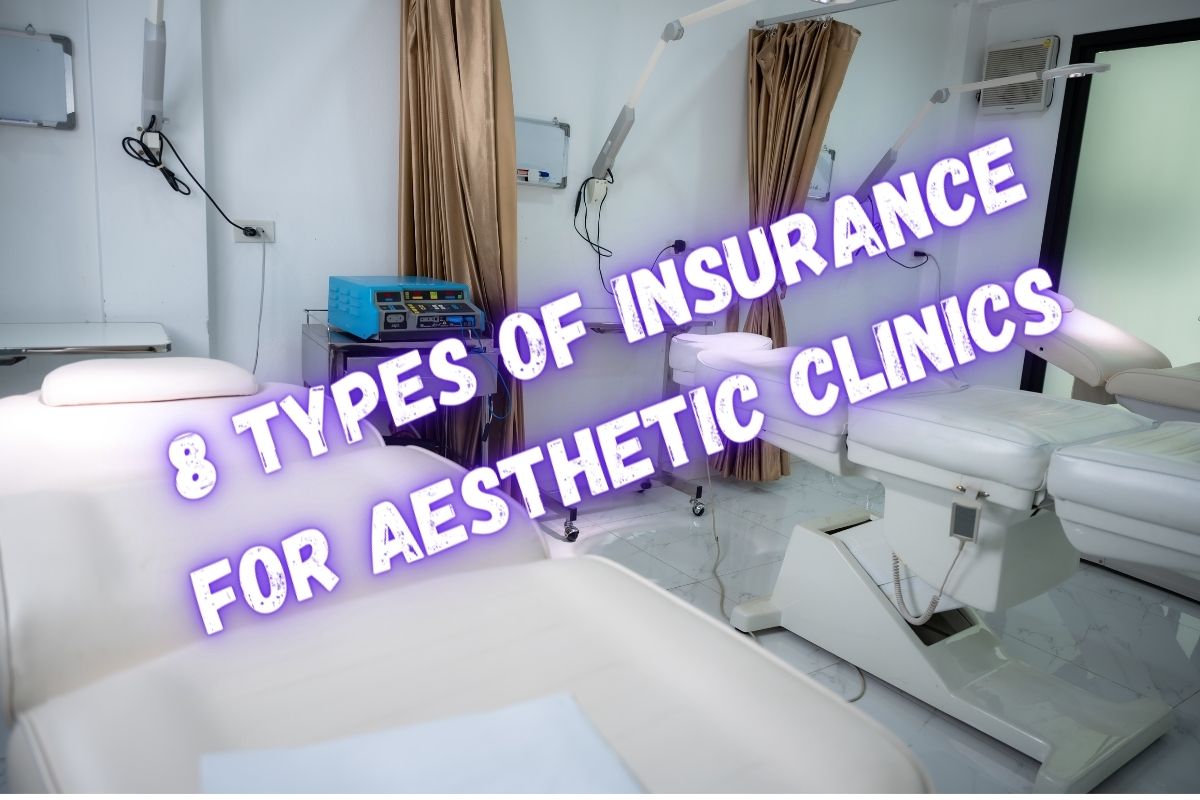Running an aesthetic clinic involves more than just offering beauty treatments and cosmetic procedures. It requires a significant amount of planning, investment, and risk management. One critical aspect of managing these risks is securing the right insurance coverage. Proper insurance not only protects the clinic from financial losses but also enhances its credibility and trustworthiness among clients. Here, we explore the various types of insurance needed for aesthetic clinics to ensure smooth and secure operations.
- Professional Liability Insurance
Professional liability insurance, also known as malpractice insurance, is perhaps the most crucial coverage for an aesthetic clinic such as Facial Rejuve. This insurance protects the clinic and its practitioners from claims of negligence, errors, or omissions in the services provided. In the aesthetic industry, where procedures can sometimes lead to complications or unsatisfactory results, having professional liability insurance is essential. It covers legal fees, settlements, and judgments, helping to safeguard the clinic’s financial health and reputation.
- General Liability Insurance
General liability insurance is another fundamental coverage for any business, including aesthetic clinics. This insurance protects the clinic from third-party claims of personal injury, property damage, and bodily injury that occur on the clinic’s premises. For instance, if a client slips and falls in the waiting area or if there is accidental damage to a client’s property, general liability insurance will cover the associated costs. This type of insurance ensures that the clinic is protected against common accidents and mishaps that could otherwise lead to significant financial burdens.

- Property Insurance
Property insurance is vital for protecting the physical assets of an aesthetic clinic. This coverage includes the building, furniture, equipment, and supplies. Whether the clinic operates out of a leased space or owns the property, property insurance provides coverage against risks such as fire, theft, vandalism, and natural disasters. Given the high cost of medical and cosmetic equipment, having property insurance is crucial to ensure that the clinic can quickly recover and continue operations after a loss.
- Workers’ Compensation Insurance
If the aesthetic clinic employs staff, workers’ compensation insurance is typically required by law. This insurance provides benefits to employees who suffer work-related injuries or illnesses. It covers a portion of lost wages, rehabilitation costs, and medical expenses for the affected employees. Workers’ compensation insurance not only helps protect the employees but also shields the clinic from potential lawsuits related to workplace injuries. It demonstrates the clinic’s commitment to the well-being of its staff, fostering a safer and more supportive working environment.
- Cyber Liability Insurance
In today’s digital age, aesthetic clinics often handle sensitive client information, including personal details, medical histories, and payment information. Cyber liability insurance is meant to safeguard the clinic from the financial implications of cyberattacks, data breaches, and other cyber-related incidents. This coverage can include costs related to legal fees, notification expenses, credit monitoring services for affected clients, and even public relations efforts to restore the clinic’s reputation. With the increasing prevalence of cyber threats, cyber liability insurance is becoming an essential component of risk management for aesthetic clinics.
- Business Interruption Insurance
Business interruption insurance, also known as business income insurance, covers the loss of income that a clinic might suffer due to a covered event that disrupts its operations. This could be a fire, natural disaster, or other incidents that force the clinic to close temporarily. Business interruption insurance helps cover ongoing expenses such as rent, salaries, and utilities, ensuring that the clinic can survive financially during the downtime. This type of insurance is crucial for maintaining financial stability and enabling a swift recovery after an unexpected disruption.
- Product Liability Insurance
Aesthetic clinics often use various products, including skincare items, injectables, and medical devices, in their treatments. Product liability insurance protects the clinic from claims arising from injuries or damages caused by these products. If a client experiences an adverse reaction to a product used during a treatment, the clinic could be held liable. Product liability insurance covers legal fees, settlements, and judgments related to such claims. This insurance is essential for clinics that sell or use products as part of their services, providing an extra layer of protection against unforeseen product-related risks.
- Employment Practices Liability Insurance (EPLI)
Employment practices liability insurance (EPLI) covers the clinic against claims made by employees related to employment issues such as discrimination, wrongful termination, harassment, and other employment-related disputes. Given the sensitive nature of the aesthetic industry, it is important to have this coverage to protect the clinic from potential lawsuits filed by current or former employees. EPLI helps cover legal costs, settlements, and judgments, ensuring that the clinic can manage employment-related risks effectively. It is advised that staff in this sector undergo essential health and safety training for insurance and safety purposes within the business.
Conclusion
Securing the appropriate insurance coverage is a vital aspect of managing an aesthetic clinic. Each type of insurance addresses specific risks and helps protect the clinic, its employees, and its clients. By investing in comprehensive insurance coverage, aesthetic clinics can operate with greater confidence and security, focusing on providing high-quality services without the constant worry of potential financial setbacks. As the industry continues to evolve and expand, having robust insurance protection will remain a cornerstone of successful and sustainable aesthetic practice.


